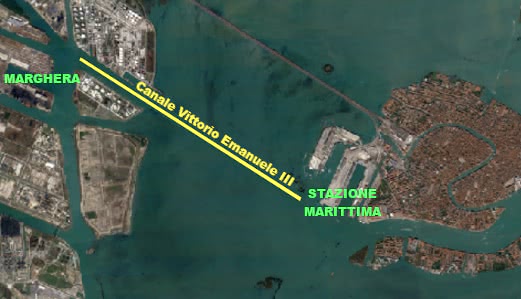
The excavation of the Vittorio Emanuele III Canal that connects the canal
of Giudecca and the Maritime Station of Venice in Porto Marghera,
intervention for which the Authority of Harbour System of the
North Adriatic Sea will issue a notice in these
days, is a solution for the entry of ships into the
Venice Lagoon proposed by the president of the AdSP, Fulvio Lino
Di Blasio, who is extraordinary commissioner for the
implementation of temporary landings and complementary interventions
for the protection of Venice and its lagoon. It is a
solution that Oceania Cruises and Regent Seven Seas really like,
cruise lines of the Norwegian Cruise Line Holdings group.
Reconfirming their firm support for the initiative and recalling
that «Venice is one of the most sought-after destinations
by luxury travelers from all over the world», Oceania Cruises and
Regent Seven Seas highlighted in a note that "our
boats are considerably smaller than
Today's large cruise ships, and they accommodate only a few hundred
guests instead of thousands. The gross tonnage varies from 28,000 to
56,000 tonnes with a passenger capacity ranging from
490 to 750 guests. In addition, our guests contribute in
relevant to the local economy as the ships stop in
kind of two or three days in Venice. Cruise lines and
Passengers themselves hire tour guides to discover the
wonderful historical sites of Venice, booking hotel stays
For several days, they dine in restaurants and buy products in
numerous shops in the city».
Underlining their commitment to working with local partners
around the world to minimize environmental impact
of the destinations visited by their ships, the two brands of the group
NCLH have specified that they believe that this new plan, which
would allow ships entering the Lagoon through the Channel
Malamocco Marghera to reach the Maritime Station of Venice
passing through the Vittorio Emanuele III Canal, "achieve such
objectives ensuring that travellers have easy access to Venice and
at the same time mutually beneficial tourism practices'.
